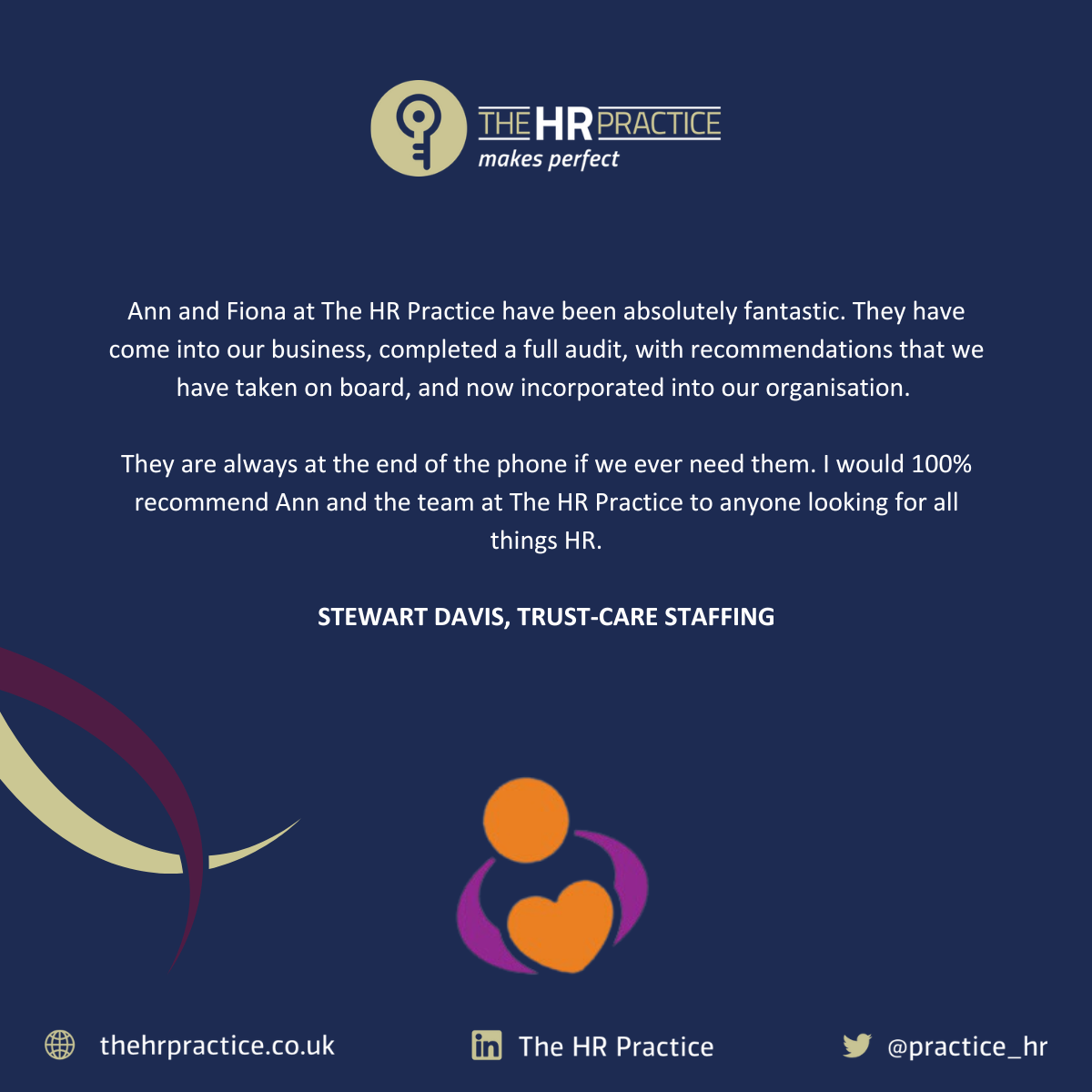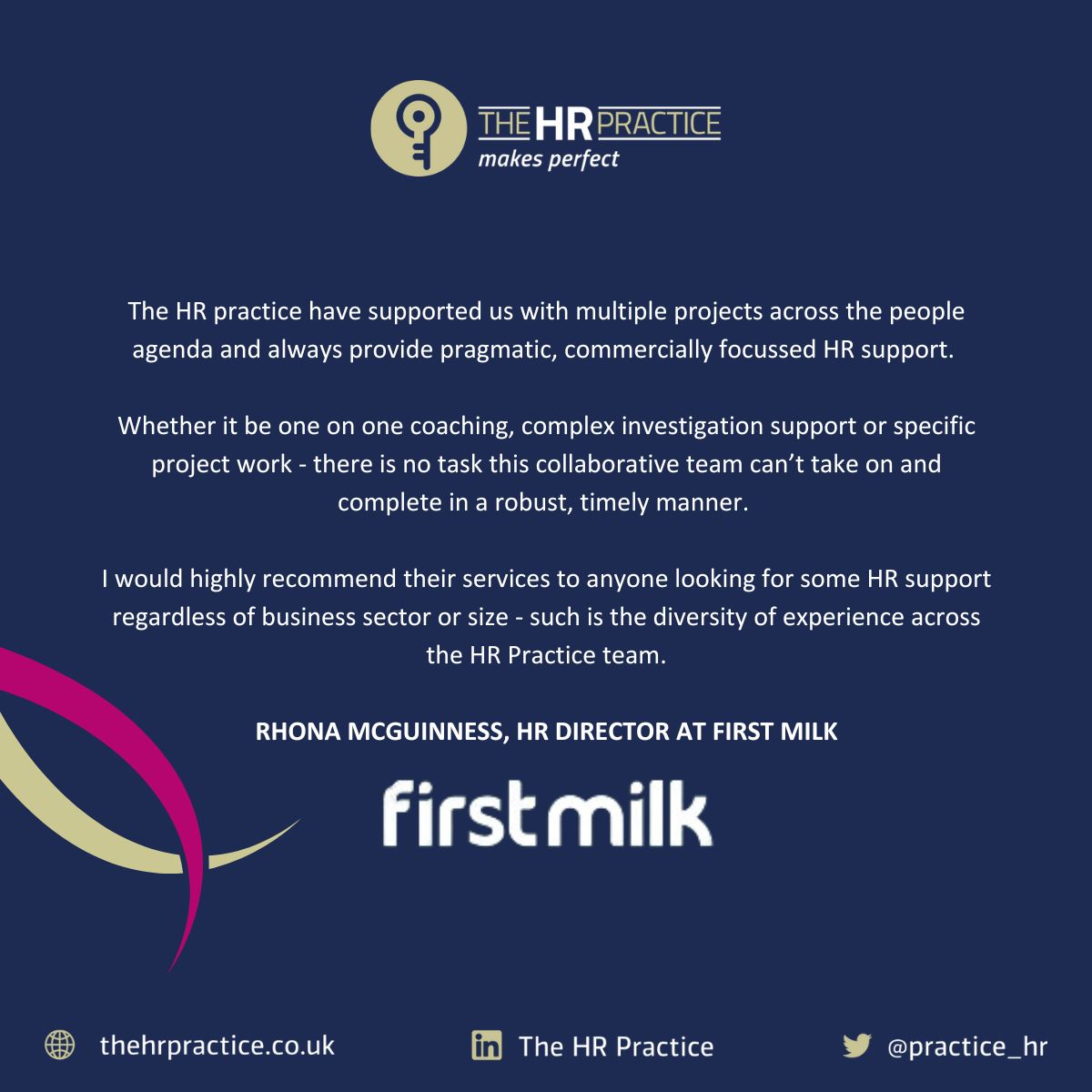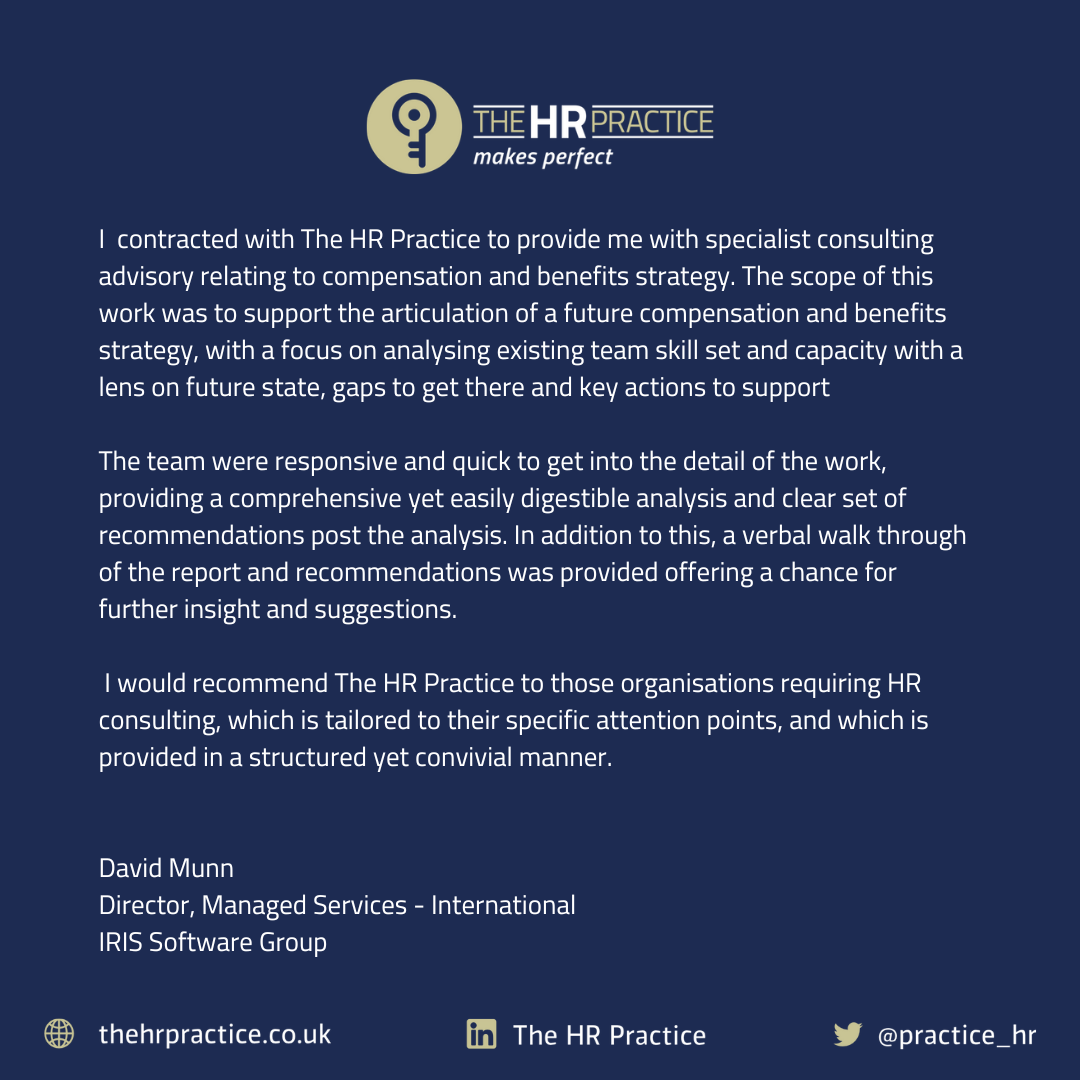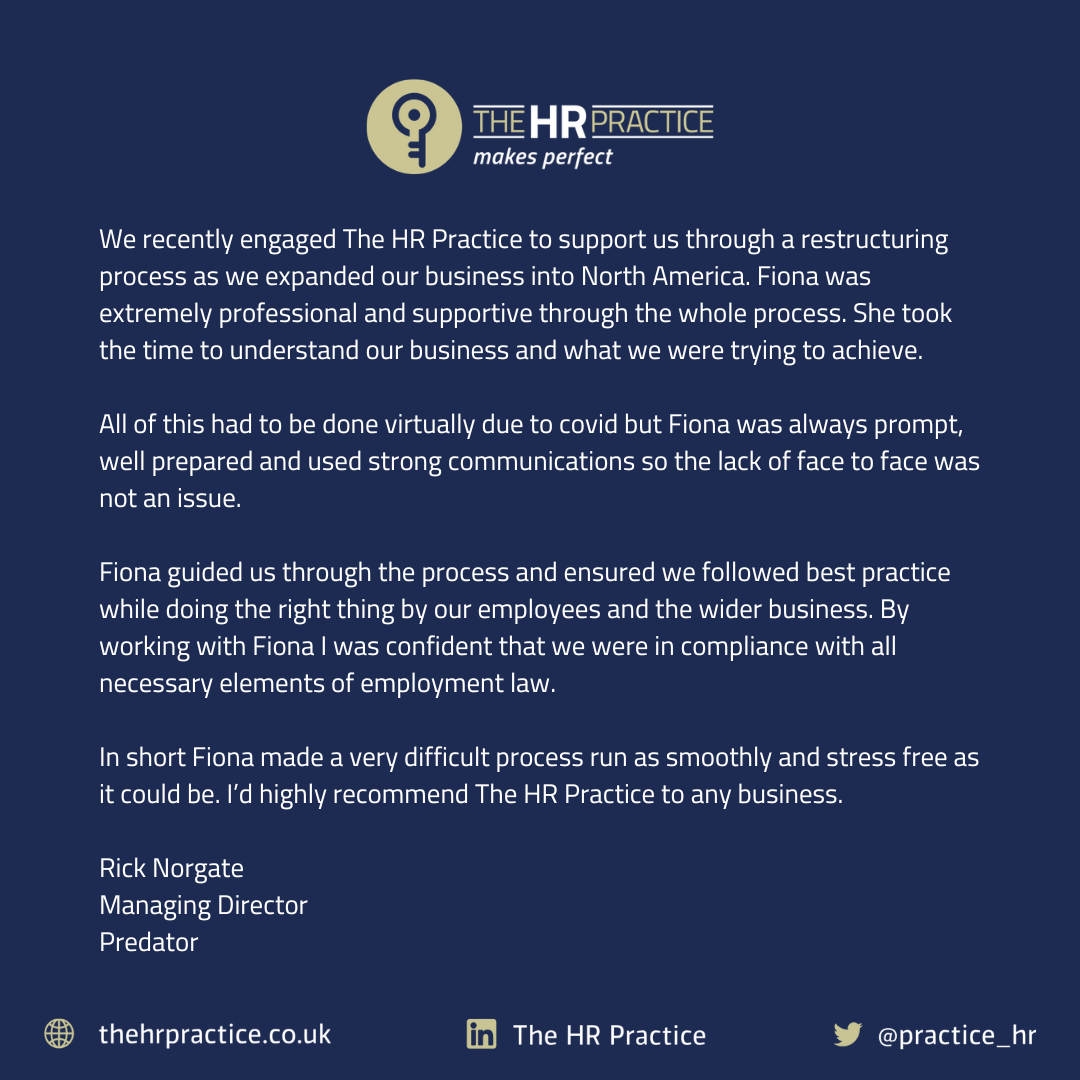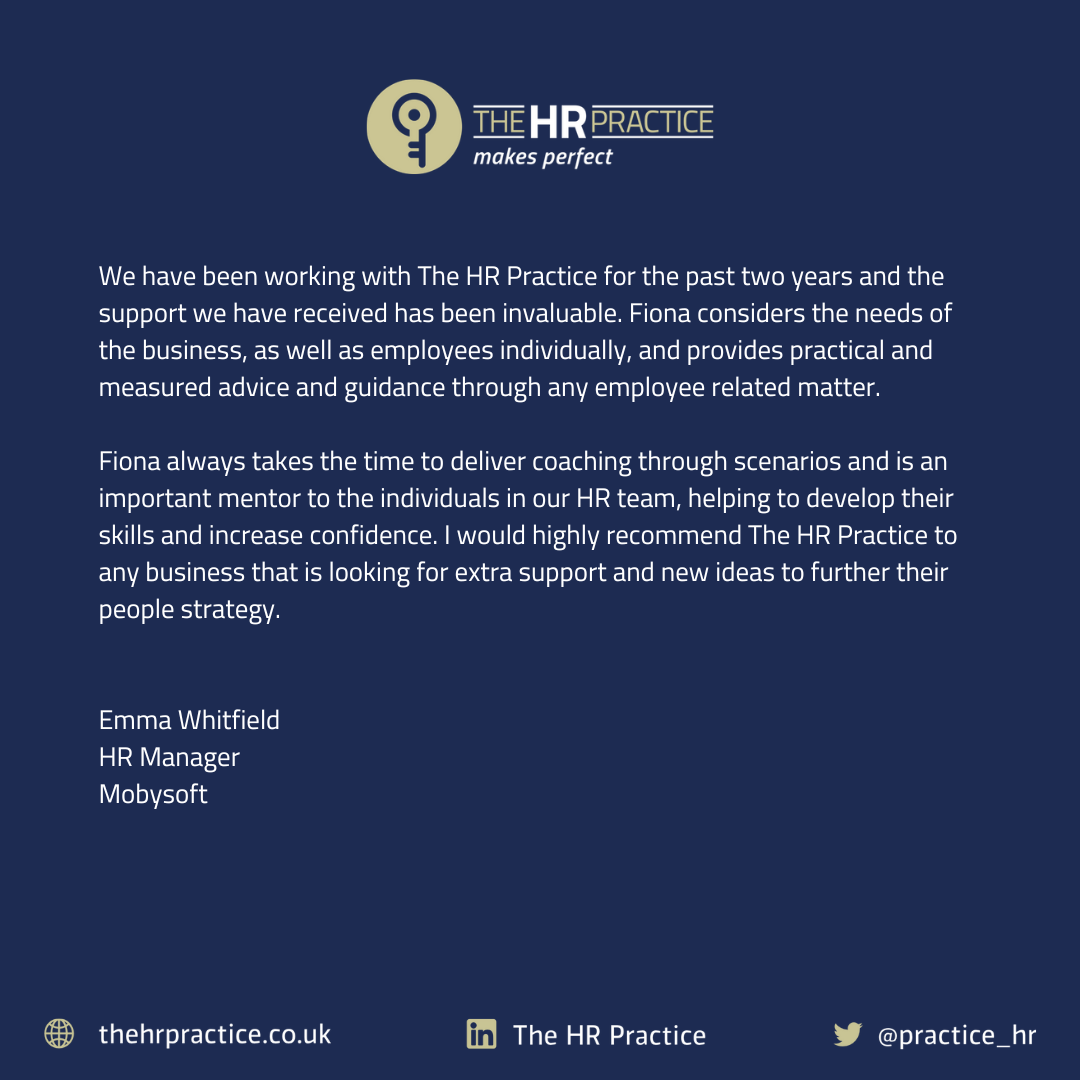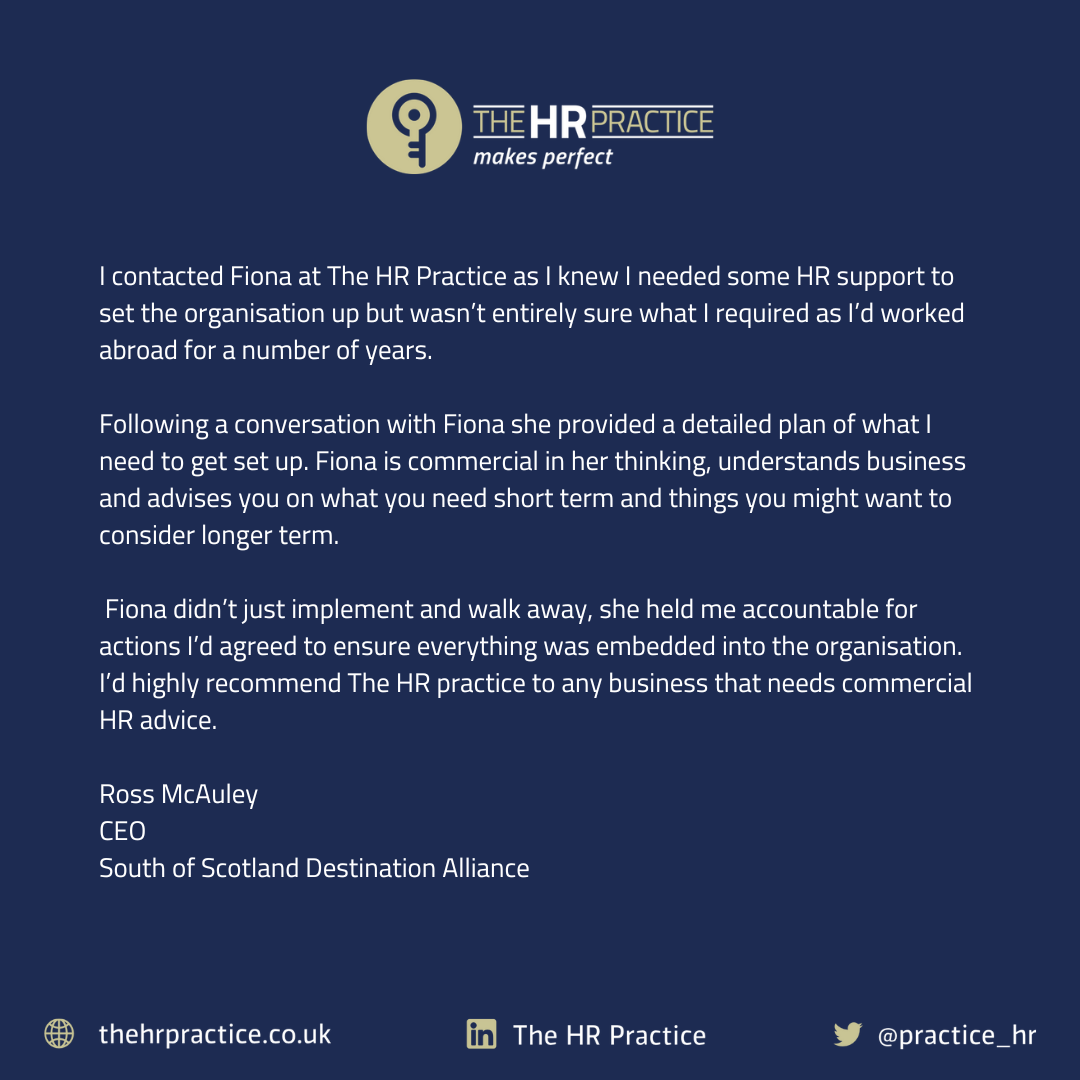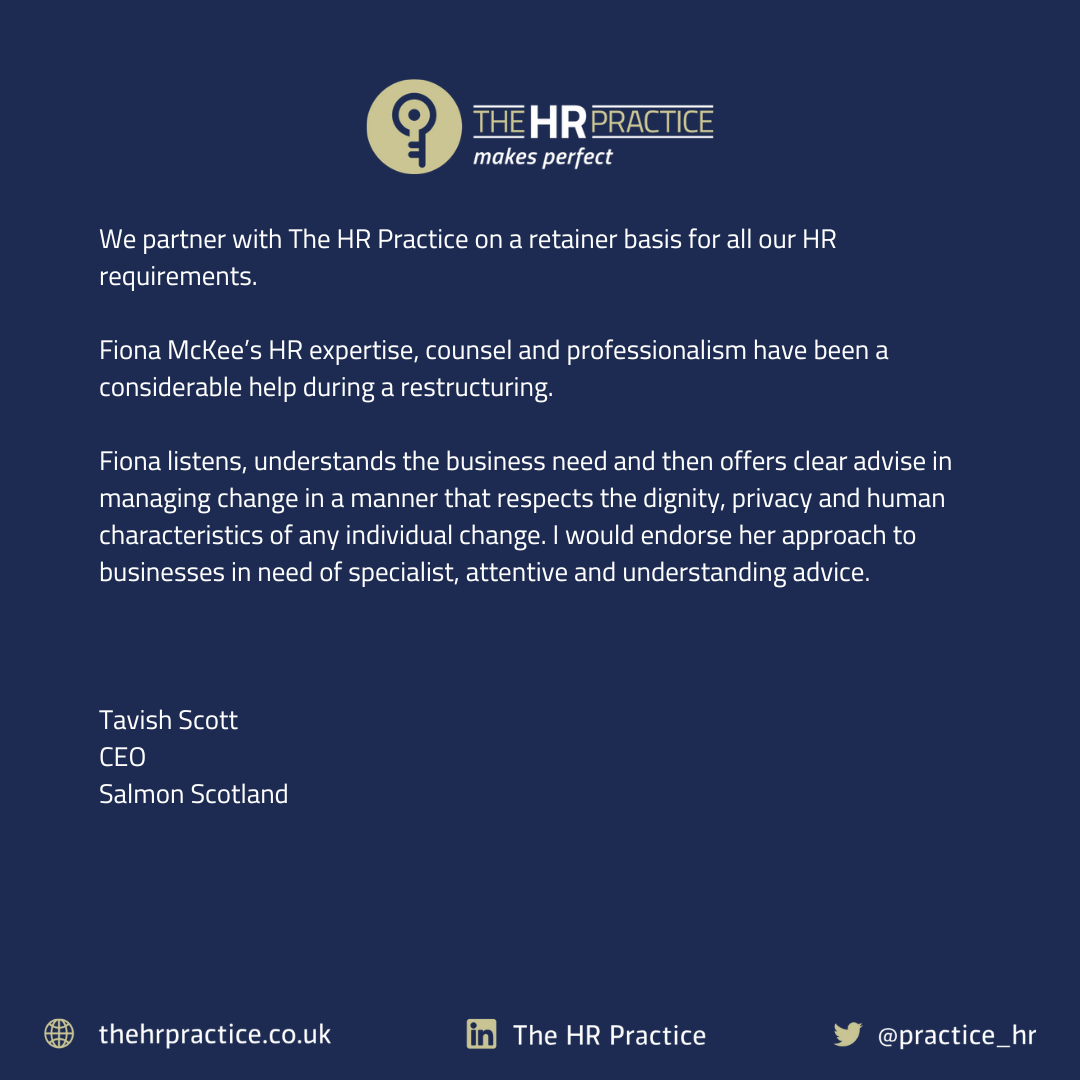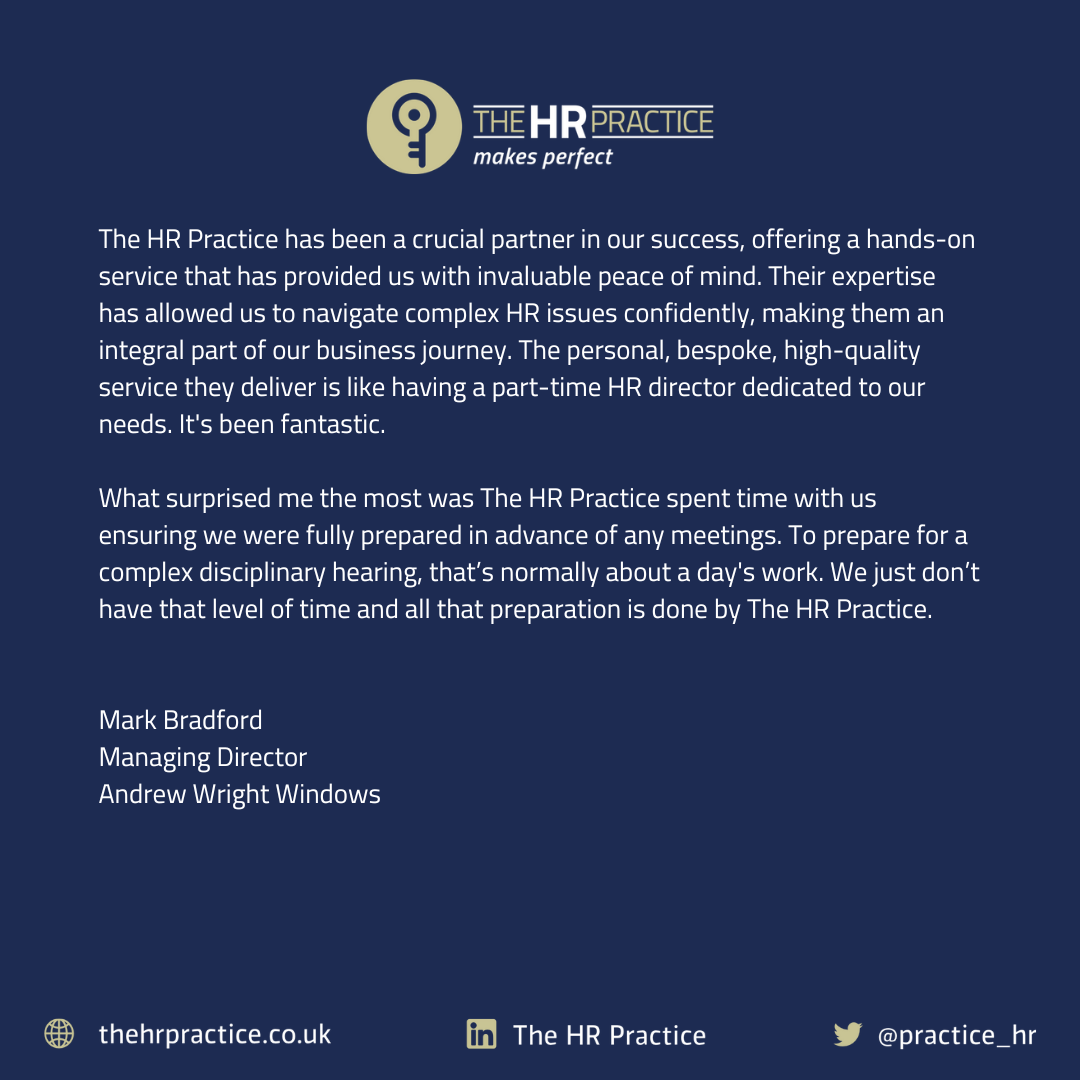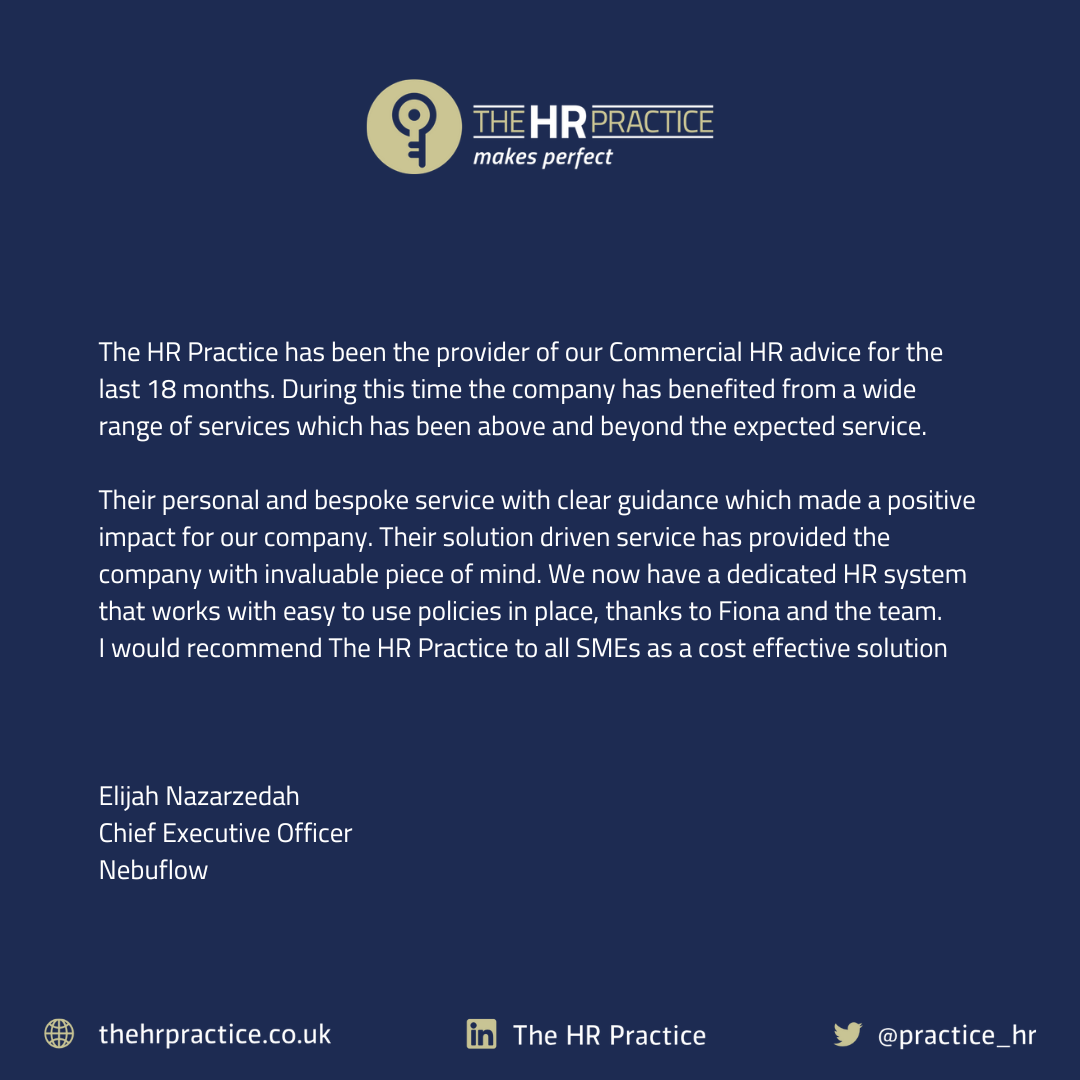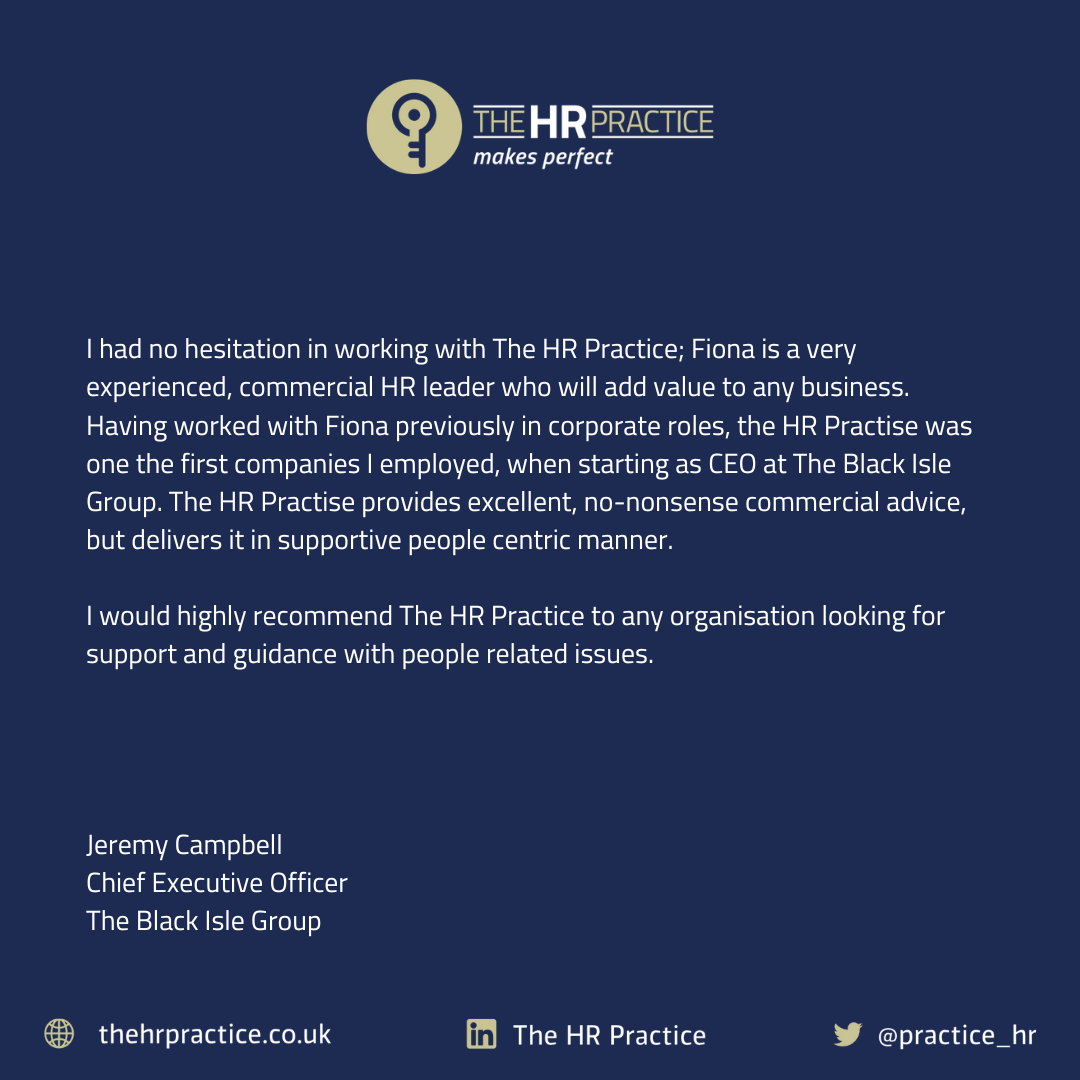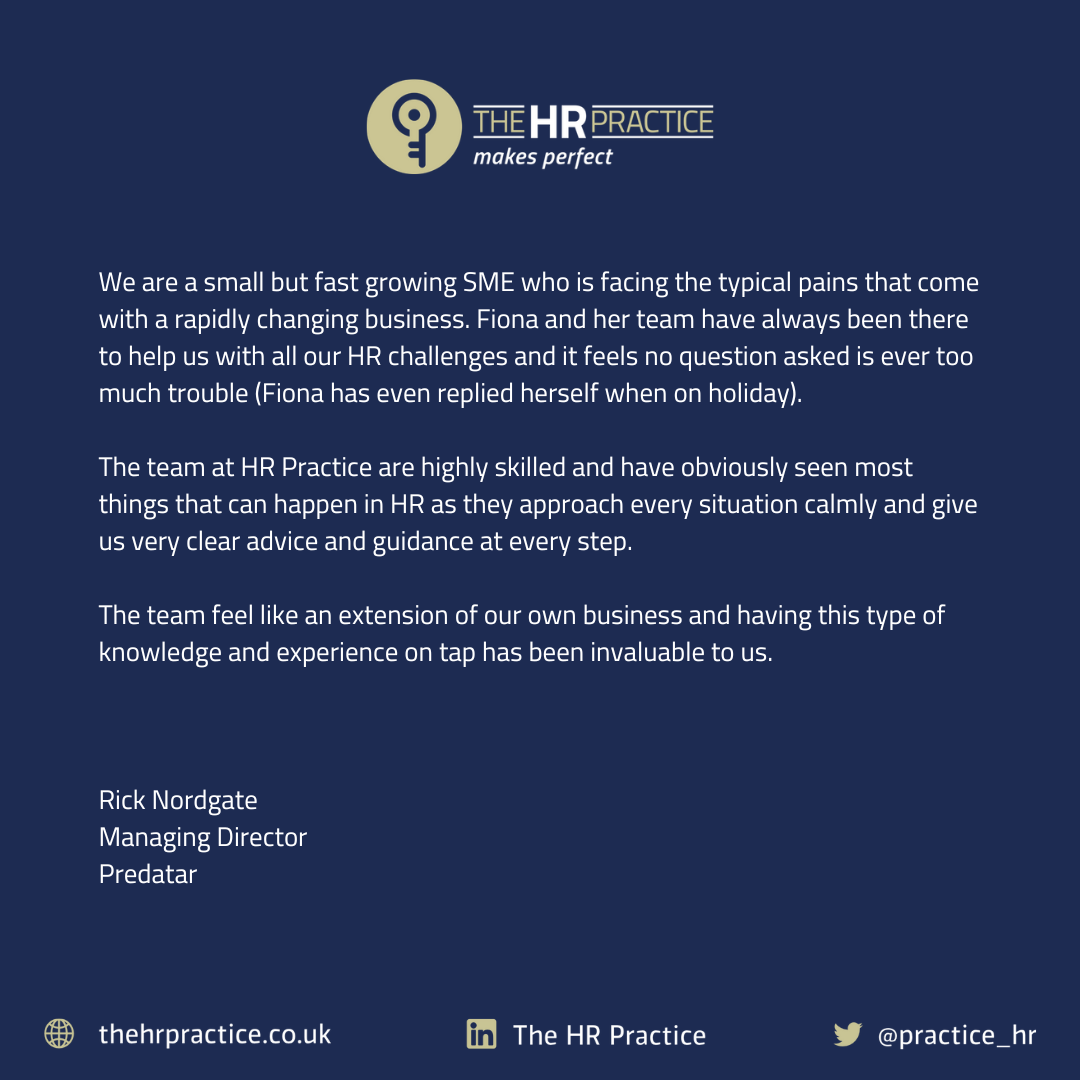In the inaugural episode of HR Unlocked Live, Heather Offord sat down with Fiona McKee, the founder and director of The HR Practice, to discuss Fiona's journey into entrepreneurship and the future of her growing HR consultancy. The conversation highlighted Fiona’s personal story, her insights on running a business, and her unique approach to delivering HR services tailored to the needs of small and medium-sized enterprises (SMEs). Here's what we learned from their engaging conversation.
From Global Director to Founder: A Personal Journey
Fiona’s path to starting The HR Practice was rooted in both professional ambition and personal reflection. As the Global HR Director for a large services and technology company, she was in a stable, well-paying position. However, the end of her father-in-law’s life during the COVID-19 pandemic caused her to reassess her own goals. While sitting in the hospital, she had a moment of clarity: she decided it was time to take the leap and start her own business, despite the risks.
Fiona admitted that she had dreamed of going solo for years but always held back due to the comfort of a steady salary and lifestyle. Yet, she knew she didn’t want to live with regrets, and that pivotal moment made her realise it was time to act. The result? The birth of The HR Practice.
Navigating the Early Days
Initially, Fiona didn’t have a clear plan for what her business would look like. Starting with M&A (mergers and acquisitions) integrations for global companies, she helped businesses navigate the complex HR processes involved in acquisitions. It was a niche area that she still offers today.
However, it wasn’t long before Fiona began receiving enquiries from SMEs looking for HR support. Realising the demand in this sector, she pivoted her focus towards providing HR solutions to SMEs and entrepreneurial businesses—a move that has shaped the company's growth over the past few years.
Growth, Challenges, and Building a Team
Like many entrepreneurs, Fiona has faced ups and downs. She candidly shared that while business ownership is rewarding, it also comes with its own set of stresses. From managing marketing and finance to handling IT, operations, and HR, Fiona wore many hats in the early days. But with perseverance and a clear vision, she was able to grow the business.
Today, Fiona leads a team of two additional HR consultants and an administrative support member. This expansion has allowed her to step back from the day-to-day operations and focus more on the strategic direction of The HR Practice.
Fiona’s firm offers a comprehensive suite of HR solutions for SMEs, covering everything from onboarding and contracts to disciplinary processes and employee engagement. She emphasised that The HR Practice becomes an extension of each client’s business, acting as their in-house HR department.
The Importance of HR Audits
One of the standout services Fiona recommends to new clients is a full HR audit. She explained that many business owners know they need HR support but aren’t exactly sure what they require. An audit provides a clear picture of a company’s HR needs, identifies any gaps, and helps develop a plan for the next 12 months.
Fiona is also transparent with her clients: once the audit is complete, they aren’t obligated to use her services to implement the recommendations. This level of honesty and integrity has earned Fiona the trust of her clients, who appreciate the clarity and control the audit offers them.
The HR Practice’s Expertise
Fiona highlighted another key differentiator for her company: the depth of experience within her team. All members of The HR Practice have held senior HR roles, including HR Director and Head of People positions. This means that while they can handle day-to-day HR tasks, they also offer strategic advice for growing businesses—a crucial advantage for clients looking to scale.
What’s Next for The HR Practice?
With a strong foundation and a clear path ahead, Fiona is excited about what the future holds for The HR Practice. The company’s commitment to providing tailored, expert HR solutions for SMEs has positioned it as a trusted partner for local businesses. As Fiona continues to expand her team and services, she remains focused on delivering exceptional value to her clients, ensuring that they stay compliant, supported, and equipped to navigate the complexities of managing people.
Looking Ahead: Building on Success
As 2024 starts to draw to a close, Fiona reflected on the progress The HR Practice has made this year. A key focus has been transitioning from one-off projects to retained revenue models. With the help of advisors in Glasgow, Fiona has developed a five-year plan, and she proudly shared that the company now operates on a 70% retained revenue basis—a significant achievement.
Looking ahead, The HR Practice is set for continued growth, and Fiona remains passionate about supporting local businesses. She understands the challenges employers face with constantly changing legislation, and she aims to relieve that burden by ensuring her clients are always compliant and up to date.
Final Thoughts
As Fiona’s story shows, building a business is a journey of learning, growth, and resilience. From her initial leap of faith during the pandemic to growing a successful HR consultancy, Fiona’s story is one of bravery and determination. For SMEs looking for HR support, The HR Practice offers not only a wealth of expertise but also a genuine commitment to helping businesses thrive.
You can catch Fiona in her next HR Unlocked Live episode next month, where she will continue to share her insights on HR topics. Stay tuned for more updates, and if you have any questions, feel free to reach out to Fiona and the team — they are always happy to help!


